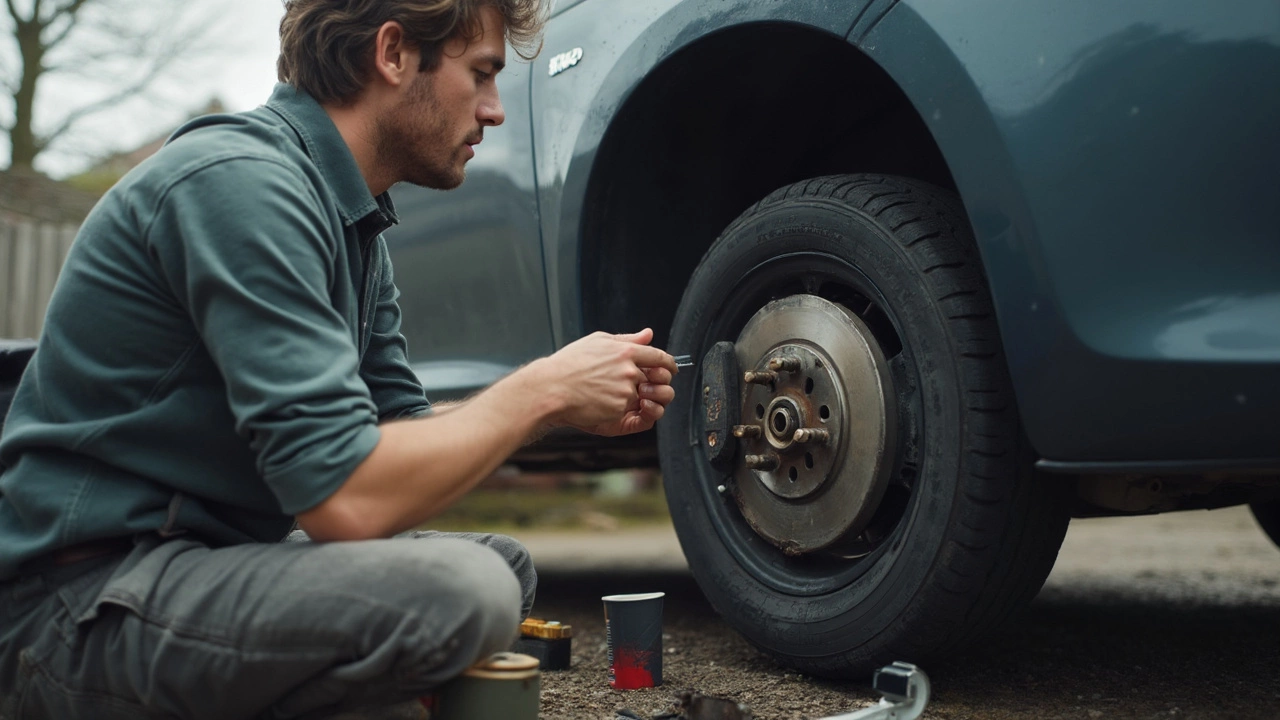Front Brakes: When to Replace Pads, Rotors, and What You Need to Know
When it comes to your car’s safety, nothing matters more than the front brakes, the primary system that stops your vehicle by converting motion into heat through friction between pads and rotors. Also known as disc brakes, they’re the reason your car doesn’t keep going when you lift your foot off the pedal. Unlike rear brakes, front brakes handle 70-80% of your stopping power—so if they’re worn, you’re not just risking a slow stop, you’re risking a crash.
Most people think brake pads are the only part that wears out, but that’s not true. The brake rotors, the metal discs that the pads clamp onto can warp, crack, or wear thin too. If you hear a grinding noise, feel vibration in the pedal, or notice your car pulling to one side, it’s not just the pads. Rotors are likely done. And if you ignore it, you’ll end up replacing both—plus paying for damaged calipers or brake lines. Replacing brake pads without checking the rotors is like putting new tires on a bent rim. It looks fine, but it won’t work right.
Brake wear doesn’t wait for a convenient time. It sneaks up on you. That squeal when you stop? That’s the wear indicator. That longer stopping distance? That’s your pads getting thin. That shaky steering wheel? That’s warped rotors. These aren’t myths—they’re facts backed by real-world testing. In the UK, where weather changes fast and roads get wet, brake performance isn’t optional. It’s a legal and safety requirement. The MOT test checks brake efficiency, pad thickness, and rotor condition. If your front brakes fail, your car won’t pass.
You don’t need to be a mechanic to check your front brakes. A quick visual through the wheel spokes can show you if the pads are below 3mm. A listen while driving at low speed can catch early squeaks. And if you’ve driven more than 30,000 miles without a check, you’re overdue. The good news? Most brake jobs are affordable if caught early. The bad news? Waiting until the metal grinds on metal can cost you over £500 in extra damage.
What you’ll find below are real, no-fluff guides from UK drivers and mechanics who’ve been there. You’ll learn how to tell if you need new rotors or just pads, what noises actually mean, how to stretch the life of your brakes, and why some "cheap" brake jobs end up costing more. No theory. No jargon. Just what works on the road, in the rain, and under the weight of a full car.

Which Brakes Wear Out First? What You Need to Know About Brake Pads
Ever wondered which brakes give up first, the front or the rear? This article breaks it down with simple facts and real-world examples. You'll learn why front brake pads usually wear out faster, what driving habits play a part, and how to spot warning signs. Get handy tips to make your brakes last longer and avoid surprise repairs. Perfect for anyone who owns a car or plans to.
April 25 2025